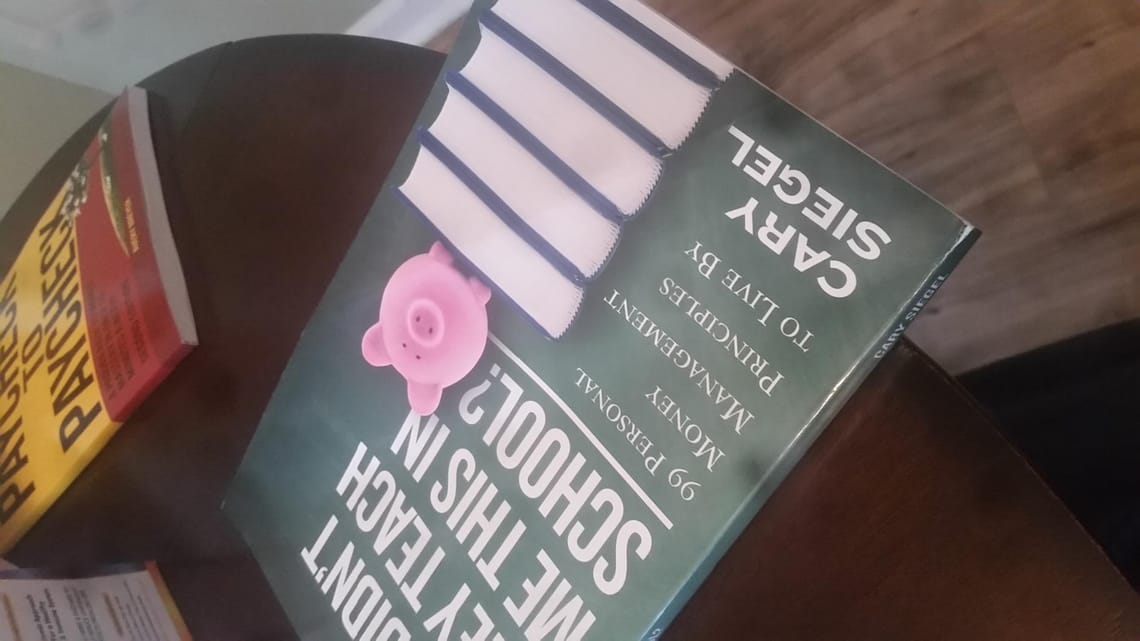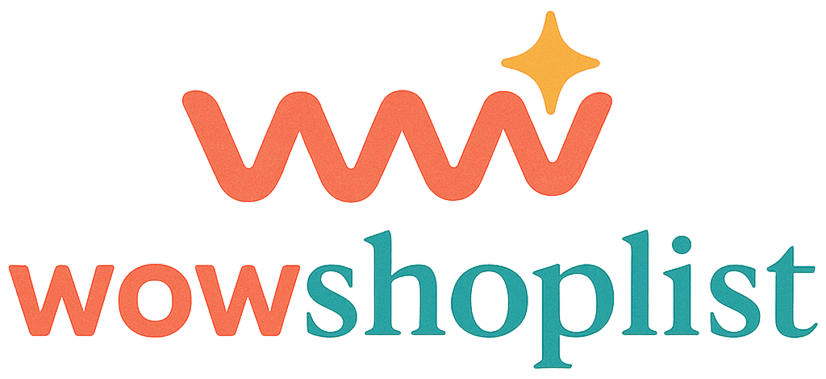
Is This Book the Missing Money Class You Never Had?
Author Byline: By David Miller / Last updated on August 14, 2025
The Article Body
Introduction
I still remember my first “real” paycheck. I was 22, fresh out of college, and that direct deposit felt like winning the lottery. My first thought? “I deserve something nice.” That “nice thing” turned into a car payment I couldn't really afford, which led to my first real dance with credit card debt to cover the rest of my expenses. I spent the better part of my twenties financially stumbling in the dark, making mistakes that a little bit of basic knowledge could have easily prevented.
It’s a story I’ve heard a hundred times from friends and colleagues. We were taught trigonometry and the history of the Peloponnesian War, but nobody ever sat us down for a simple, one-hour class on how money actually works in the real world. That’s why when I came across Cary Siegel’s book, with its almost accusing title, Why Didn't They Teach Me This in School?, I had to pick it up. I wasn't just reviewing a book; I was looking for the antidote to my own past financial ignorance.

Is This Book the Missing Money Class You Never Had?
An honest review of 'Why Didn't They Teach Me This in School?'. Discover if its 99 principles are the simple, practical money guide you actually need.
The Bottom Line Up Front (BLUF)
Yes, you should absolutely buy this book. It's the most straightforward, jargon-free, and immediately actionable financial primer I’ve ever read, making it an essential purchase for any young adult or absolute beginner.
Our Rating Breakdown
Overall Score: 8.8/10✨✨✨✨✨✨
- Actionability: 10/10 – Each of the 99 principles is a bite-sized, actionable piece of advice you can implement today.
- Clarity & Simplicity: 10/10 – The book's greatest strength. It masterfully avoids confusing jargon, speaking in plain, simple English.
- Comprehensiveness: 7/10 – Covers all the essential bases for a beginner but intentionally skips advanced topics like options trading or complex tax strategies.
- Value for Money: 9/10 – For the price of a few fancy coffees, you get a financial foundation that could be worth hundreds of thousands over a lifetime.
Key Specifications at a Glance
- Author: Cary Siegel
- Format: Paperback, 194 pages
- Core Content: 99 personal money management principles divided into 8 key parts (e.g., Saving, Spending, Budgeting, Investing).
- Target Audience: High school students, college grads, and anyone starting their financial journey.
Unboxing and First Impressions
The book itself feels approachable. It’s a slim paperback, not some intimidating, 800-page textbook. Holding it, you get the sense that it’s designed to be read quickly and referred to often. There are no fancy graphics or glossy pages. It’s utilitarian, and I mean that as a compliment. The entire design philosophy screams, "This is simple. You can do this." It feels less like a chore and more like a friendly manual you can knock out in a weekend.
Putting It to the Test: Real-World Performance
I didn't just read this book; I read it through the eyes of my 22-year-old self. As I went through each of the 99 principles, I kept asking, "Would this have saved me from a dumb decision?" The answer was a resounding "yes," over and over again.
Take Principle #52: "Your House is a Home, Not an Investment." This single piece of advice would have completely rewired my thinking during the mid-2000s housing craze. Or Principle #27: "Have Fun, But Don't Buy Happiness." I mentally tallied the thousands of dollars I spent on "stuff" in my twenties, chasing a fleeting feeling of status, instead of channeling that money into an index fund, as the book advises.
The book is broken into short, one-to-two-page chapters, each covering a single principle. I tested its "real-world" value by giving it to my 19-year-old nephew, who was heading off to college. I didn’t give him any instructions. A week later, he called me to talk about setting up a Roth IRA. He wasn't intimidated; he was energized. That, right there, is the magic of this book. It doesn't just inform; it empowers action.
What Real Users Love (The Pros)
- Incredibly Easy to Digest: The 99-principle format is brilliant. You can read one principle in two minutes while waiting for your coffee.
- 'Why this matters to you:' It eliminates the friction and overwhelm that stops most people from learning about finance. You can make progress in small, manageable chunks.
- Completely Jargon-Free: Siegel explains concepts like compound interest and mutual funds in the simplest terms possible.
- 'Why this matters to you:' You won't need a financial dictionary to understand the advice. It's accessible to a true beginner. I personally found his explanation of mutual funds to be one of the clearest I've ever read.
- Highly Actionable: Every principle is a direct command or a strong piece of advice, not a vague theory.
- 'Why this matters to you:' It bridges the gap between knowing and doing. You finish a chapter and know exactly what your next step should be.
Common Complaints & Potential Deal-Breakers (The Cons)
- Lacks Depth for Veterans: If you're already familiar with personal finance basics, you will find this book far too simplistic.
- 'Why this matters to you:' This is not the book for learning advanced investment strategies, real estate syndication, or complex tax optimization. It's strictly a 101 course.
- Some Principles Feel Repetitive: A few of the 99 principles overlap or feel like common sense (e.g., "Don't Spend More Than You Make").
- 'Why this matters to you:' While this might feel slightly redundant, for the target audience (absolute beginners), this repetition can actually be helpful for reinforcement.
Is It Built to Last? Durability and Long-Term Value
While the paperback might get dog-eared, the advice within is evergreen. The book isn't about hot stock tips or chasing the latest crypto trend. It’s about the foundational, time-tested pillars of personal finance: budget, save more than you spend, avoid bad debt, and invest consistently for the long term. These principles were true 50 years ago, and they'll be true 50 years from now. This book isn't a purchase; it's a small, one-time investment in a lifetime of financial stability. Its value will compound right alongside the money you save by following its advice.
Best Alternatives (The Competition)
This book excels in simplicity, but other classics offer different philosophies.
| Feature | Why Didn't They Teach Me... | The Total Money Makeover (Dave Ramsey) |
|---|---|---|
| Core Philosophy | Simple, bite-sized principles | A structured, intense debt-elimination plan |
| Best For | Absolute beginners, young adults | People in significant debt needing a strict plan |
| Tone | Gentle, encouraging "common sense" | Fiery, motivational, "tough love" |
| Actionability | Pick and choose principles | Follow 7 "Baby Steps" in strict order |
The Total Money Makeover is for someone who needs a fire lit under them to get out of serious debt. This book is for someone who wants to build a solid foundation from the start to avoid getting into that trouble in the first place.
Frequently Asked Questions (FAQ)
- 1. Is this book really for someone who knows nothing about money?
Absolutely. This is probably the single best "first book" on finance you could ever read. It assumes you know nothing and builds from there. - 2. Is this book good for teenagers?
Yes. I would make this required reading for every high school junior or senior. It's the perfect graduation gift. - 3. How is this different from books like Rich Dad Poor Dad?
Rich Dad Poor Dad is more about developing a wealth-building mindset, focusing on assets and liabilities. This book is a practical, step-by-step "how-to" guide for day-to-day money management. They are excellent companions. - 4. Will I learn about how to invest in stocks?
It will teach you why you should invest and explain the basics of tools like 401(k)s and mutual funds. It will not teach you how to analyze and pick individual stocks. - 5. Are the 99 principles overwhelming?
Not at all. They are grouped into logical sections (like a part on saving, a part on spending, etc.), and each one is a self-contained, 2-minute read. - 6. Is the information still relevant today?
100%. The principles are timeless. While specific numbers like contribution limits might change, the core concepts of budgeting, saving, and long-term investing do not.
Final Thoughts & Recommendation
Looking back at that 22-year-old version of myself, drowning in a car payment and clueless about my financial future, this is the book I would have handed him. It wouldn’t have just been a book; it would have been a map.
If you are just starting your financial journey, feel overwhelmed by complicated advice, or want to give a young person in your life a genuine head start, you cannot find a better, more accessible, or more valuable tool than this book. It's not just a book; it's the financial education you never received, finally delivered.
Call to Action
Go ahead and grab a copy. It’s one of the smallest investments you can make with the highest potential return.
Audience Growth & Engagement
"Become a WowShopList Insider"
"Love discovering products that are genuinely worth it? I know I do. Subscribe to my exclusive WowShopList Weekly newsletter. Each week, I send one personal email featuring the most unique, innovative, and valuable product I've found—my 'hidden gem' of the week. It's 100% free to join now, and you'll be locked in for life. We plan to make this a paid newsletter in the future, but our founding members will always get it for free."
"We hope this in-depth review helps you make a confident choice! To continue your research, check out some of our other popular guides:"
- Dave Ramsey's Total Money Makeover: A Brutally Honest Review
- I Read 10 'Get Rich' Books—Here's What Actually Works
- The Only 5 Financial Habits You Need Before You Turn 30
- Is YNAB (You Need A Budget) Still the Best Budgeting App in 2024?
- 'Rich Dad Poor Dad': 25 Years Later, Does It Still Hold Up?
- The Best High-Yield Savings Accounts We're Using Right Now
"Now I'd love to hear from you! Drop a comment below with your experience or any questions I didn't cover. I read every single one."















